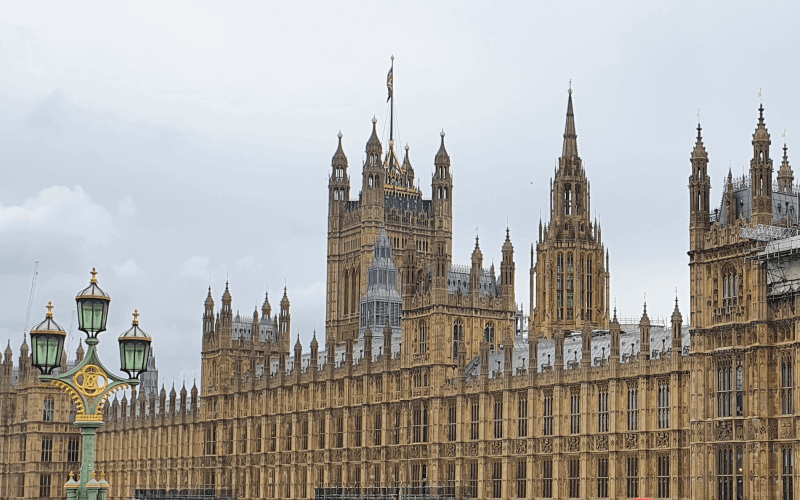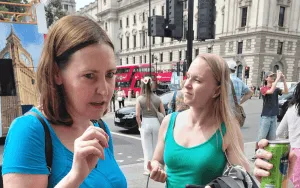Political parties and institutions such as local councils have repeatedly broken equality laws by failing to make reasonable adjustments for disabled politicians, according to research commissioned by the government.
The report says that disabled people in England and Wales face a “multitude” of barriers across the different stages of the political process, from activism and considering running for office, to the selection and election processes, and once they have been elected.
Researchers found disabled politicians had been prevented from attending local party meetings because of access failings, had been invited to take part in inaccessible hustings events during election campaigns, and faced a lack of support from their party once selected.
And because of the barriers they continued to face, disabled politicians typically had to spend far more time fulfilling their duties than their non-disabled colleagues, once they were elected.
The researchers conducted interviews with 45 disabled people who were MPs, former MPs, local councillors, prospective parliamentary candidates, local candidates, and those who had considered standing for election or had tried to get selected, for Labour, the Liberal Democrats, the Conservatives, the Green party, and as independents.
They were told of local party meetings held in inaccessible venues, of a lack of British Sign Language interpretation, and a failure to ensure that hearing loops were in place.
One local councillor could not attend his own party’s campaign fundraiser because it was held upstairs in a pub with no lift.
Another local election candidate was told that a campaign social event was being held in a restaurant that was inaccessible for wheelchair-users because it was a cheap venue and the event had to be accessible for those on low incomes.
Every one of the interviewees who stood for election reported multiple barriers during the election process itself.
Some were invited to take part in hustings in inaccessible venues, others said they had been unable to join the other candidates on the hustings stage, while the hustings format could be particularly difficult for deaf and neurodiverse candidates.
Disabled politicians continued to face “significant barriers” after they were elected, says the report.
Two disabled councillors described how a lift was often out of order, preventing them accessing their office and meeting rooms, but their councils refused to make reasonable adjustments for them, such as providing offices and rearranging meetings on the ground floor.
And disabled MPs described how they were not always able fulfil their duties because of the “aggressive and combative” nature of Westminster, says the report.
One MP described Westminster’s “inaccessible, hostile, bullying culture”, while another said they knew of several other MPs who were not willing to identify as disabled or disclose their impairments because of the stigma and discrimination they believed they would face.
The long-awaited report was commissioned in December 2018 by the Government Equalities Office (GEO), but it was finally published last week alongside the government’s new National Disability Strategy.
It concludes: “Whilst around a third of our participants highlighted the support and encouragement that they had received from their political party, local authority or from the support services at Westminster, there were clear examples of where parties and institutions had failed to make reasonable adjustments to facilitate the participation of disabled people.
“In other words, equalities legislation has been breached.”
A second report commissioned by GEO, and written by the same authors, Dr Elizabeth Evans, of Goldsmiths, University of London, and Dr Stefanie Reher, of the University of Strathclyde, was also published last week.
This second report evaluated the success of the government’s temporary EnAble fund.
The £250,000 fund was set up in December 2018 to provide financial support for disabled candidates for political office in England to meet extra disability-related expenses, such as the cost of distributing campaign material and to pay personal assistants.
The fund initially only covered the 2019 English local elections, but it was later extended to cover the May 2020 local and police and crime commissioner elections, although these were postponed to the following year because of the pandemic.
It also provided retrospective funding for applicants who stood in the 2019 elections to the European Parliament.
Of the 24 EnAble applicants who completed a survey, 88 per cent of them said they had had a “very positive” experience with the fund, and 92 per cent said the fund helped decrease the barriers they faced in the election process, while 42 per cent thought they could “probably not” have stood for election without EnAble funding.
The fund was mostly run by Disability Rights UK, with some support from the Local Government Association, and it provided funding for 41 candidates from across England, nearly half of whom (45 per cent) were later elected.
In last week’s national strategy, the government finally promised to “support a new scheme from April 2022 to support those seeking to become candidates and – as importantly – once they have been elected to public office”.
Successive Conservative-led governments have previously refused to set up a permanent fund.
The short-lived Access to Elected Office Fund (AEOF) was scrapped in 2015 and eventually replaced three years later with the temporary EnAble fund in response to a legal action taken by a trio of disabled politicians who warned that the failure to reopen AEOF breached the Equality Act.
AEOF had only been set up in 2012 following Liberal Democrat pressure on their Tory coalition partners; it funded disability-related costs for candidates in parliamentary and other elections, before it was closed by the Conservatives after the 2015 general election.
A note from the editor:
Please consider making a voluntary financial contribution to support the work of DNS and allow it to continue producing independent, carefully-researched news stories that focus on the lives and rights of disabled people and their user-led organisations.
Please do not contribute if you cannot afford to do so, and please note that DNS is not a charity. It is run and owned by disabled journalist John Pring and has been from its launch in April 2009.
Thank you for anything you can do to support the work of DNS…

 Disabled MP who quit government over benefit cuts tells DNS: ‘The consequences will be devastating’
Disabled MP who quit government over benefit cuts tells DNS: ‘The consequences will be devastating’ ‘We will not give a single inch,’ disabled activists vow, as Kendall publishes disability cuts bill
‘We will not give a single inch,’ disabled activists vow, as Kendall publishes disability cuts bill Rebel Labour MPs send final warning to ministers before disability cuts bill is published
Rebel Labour MPs send final warning to ministers before disability cuts bill is published